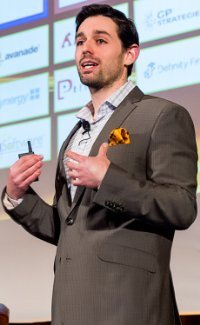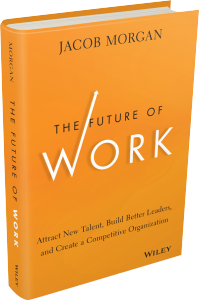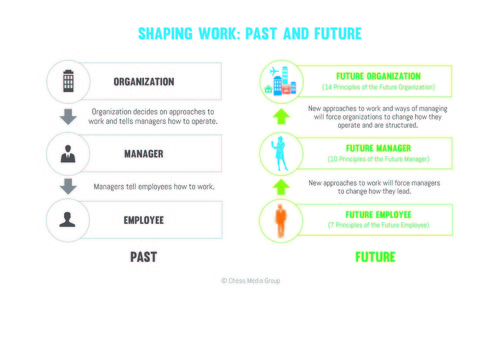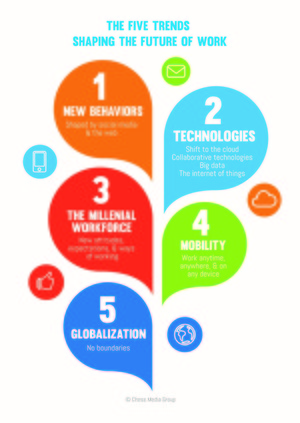Since the dawn of business there has been a certain style of how and when work should be done. It flows from the top down: beginning with the organization, to the managers, and then employees. In this case organization refers to C-level executives and key stakeholders; those at the very top of the business. This group of people has been making the decisions on behalf of the rest of the organization, decisions that include what time employees should get to work, where they should work, what they should work on, what tools they should use to get their jobs done, and pretty much anything else you can think of. The commandments from the top are then passed down to managers who in turn pass them down to employees. Over time this is how the corporate culture in most organizations around the world has remained.
Now this is changing. Last year, Zappos shook things up by restructuring into a Holacracy, eliminating job titles and managers. I spoke with Jacob Morgan to learn more about how the nature of work is transforming. Jacob is the author of the superb newly released book, The Future of Work: Attract New Talent, Build Better Leaders, and Create a Competitive Organization (Wiley). He is one of my top 100 must-follow on Twitter 2014, co-author of my Inc blog Five Ways Social Media Can Change Your Business and my Huffington Post blog about Five Ways Social Media Has Forever Changed the Way We Work. Jacob is also the principal and co-founder of the future of work consulting firm Chess Media Group and the FOW Community, an invite-only community dedicated to the future of work and collaboration.

Jacob Morgan (Twitter: @jacobm)
According to Morgan, we are seeing a fascinating shift in who is guiding the flow of work. In fact it is a complete reversal from top-down to bottom-up. Employees are bringing new attitudes, ideas, values and expectations with them into the workplace. These are all getting passed up to managers, who are being forced to adapt in order to attract and retain top talent, and managers in turn are passing it up to the organization, driving broad-based change across the entire company. Dan Pink echoed this shift when he said, "talented people need organizations less than organizations need talented people."
But why is this shift happening and why is it happening now? Morgan points to five trends shaping the future of work and driving the change.
New behaviors, such as living a more public life, building communities, and increased sharing and collaborating.
Technology, such as big data, the Internet of things, and robots and automation.
The millennial workforce, which is expected to comprise 50% of the workforce by 2020 and growing to 75% of the workforce by 2025. This is a generation of digital natives with new values, ideas, and expectations about work.
Mobility, which allows us to stay connected anytime, anywhere, and on any device.
Globalization is giving organizations around the world the opportunity to operate in markets where boundaries of any kind are diminishing.
These five trends or forces are coming together to affect and disrupt virtually every organization in every industry around the world. The trends are compelling organizations to really rethink the meaning of work. We are already seeing forward-thinking organizations beginning to challenge the conventions of how employees work, how managers lead, and how organizations are structured.

The Future of Work - Jacob Morgan
At Whirlpool, for example, the organization as a whole opted out of titles, instead focusing on leadership roles. Every Whirlpool employee is either leading self, leading others, leading function, or leading enterprise. Unilever, with almost 180,000 employees, plans to make 30% of their workforce location-independent by 2015 in an effort to grow the company while simultaneously reducing their carbon footprint. GE recently rolled out the lean startup methodology across various business units to improve innovation and empower employees. Netflix became famous for their culture deck, which they posted on SlideShare a few years back. In it, Netflix talks about how employees are able to take their own vacation days without worrying about approvals for all expenses. Valve, the popular gaming company, has abandoned the notion of managers all together in favor of a completely flat structure where employees steer the ship.
Each of these organizations is responding to the five trends above because they recognize that being able to thrive and succeed in today's business landscape requires challenging the conventions of how we work. If your organization doesn't think about and plan for the future of work, then your organization may have no future!
This post was co-authored by Jacob Morgan (Twitter: @jacobm).


